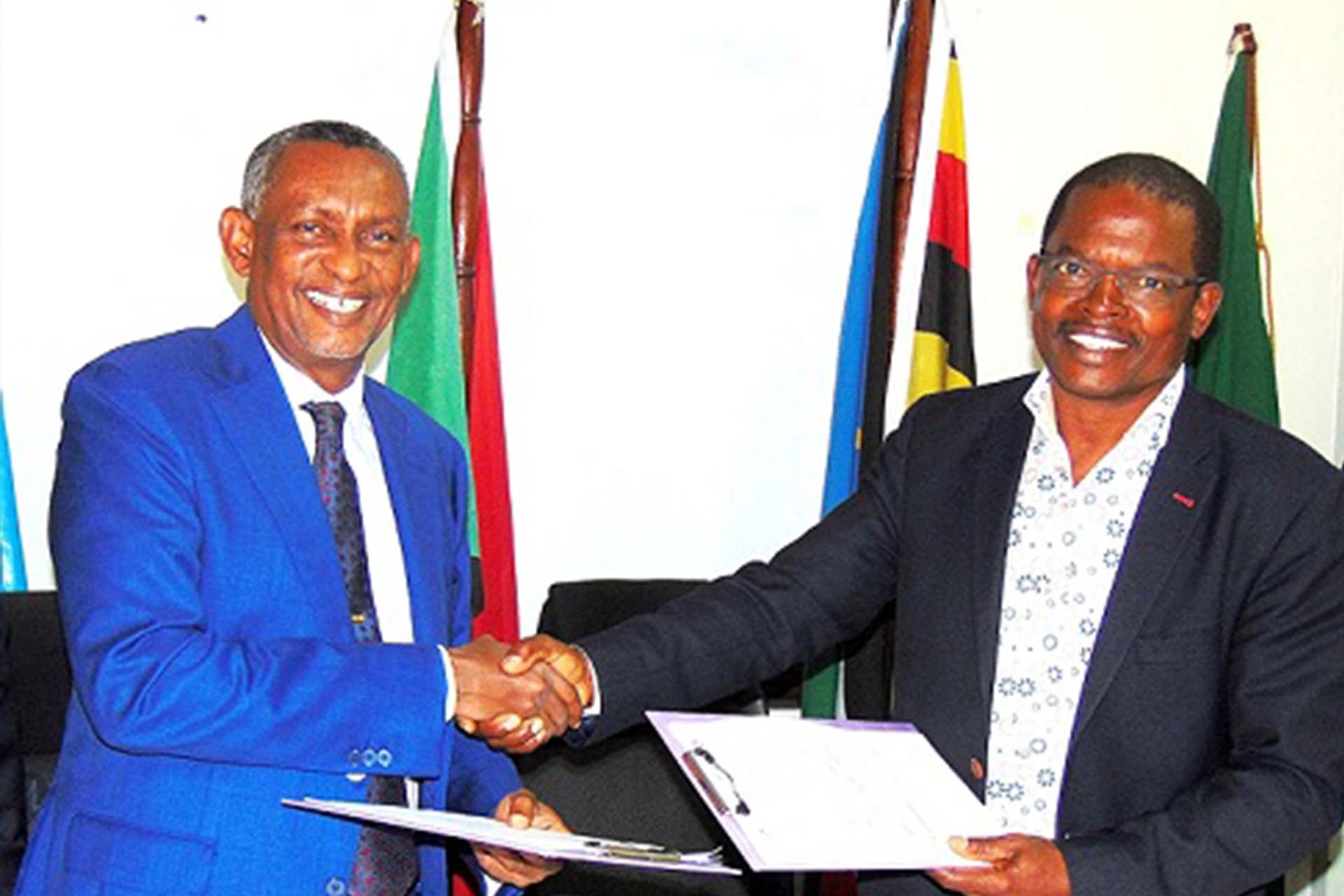July15, 2019 (NAIROBI, Kenya): A Memorandum of Understanding (MoU) was signed on Saturday, 13 July 2019, between H.E. Amb. (Eng.) Mahboub Maalim, the Executive Secretary of the Intergovernmental Authority on Development (IGAD), and Mr Jason Kapkirwok, the Chief of Party of the United States Agency for International Development (USAID) funded, Regional Intergovernmental Organization System Strengthening Activity (RIGO-SSA).
The signing ceremony was hosted at the IGAD Climate Prediction and Applications Centre (ICPAC) based in Nairobi. Present during the ceremony were Dr Guleid Artan the ICPAC Director, Mr Josephat Onyari IGAD Director of Administration & Finance and Mr Henry Oranga USAID RIGO-SSA Finance Manager.
The RIGO-SSA is a five-year activity designed to provide organizational strengthening assistance to IGAD. The activity is focused on the following core areas namely:
- Financial management;
- Performance management;
- Strategic planning; and
- Donor coordination of organisational strengthening activities.
Other recipients of this support include COMESA and EAC. The signing of this MoU is the culmination of identifying IGAD priority areas for organisational strengthening support which was determined through a consultative process led by IGAD through an established working group.
The IGAD RIGO-SSA solutions package is aligned to IGAD’s Institutional Strengthening Action Program (ISAP), which has been running since 2009; and is aimed at helping IGAD to develop sufficient institutional capacity that it requires to deliver on its regional mandate through effectively and efficiently interacting with member states, development partners, and other key stakeholders in the results oriented manner.
Five prioritized actions have been earmarked for implementation during the first phase of the plan. These actions are targeted at helping IGAD to improve its capacity in three specific areas of opportunity for improvement identified by the RIGO Organizational Performance score (RPI) related to:
- Improving its capacity in analysing and reporting high-level results;
- Strengthening its compliance to international and regional standards; and
- Improving the quality of its service delivery through improved internal management systems.

